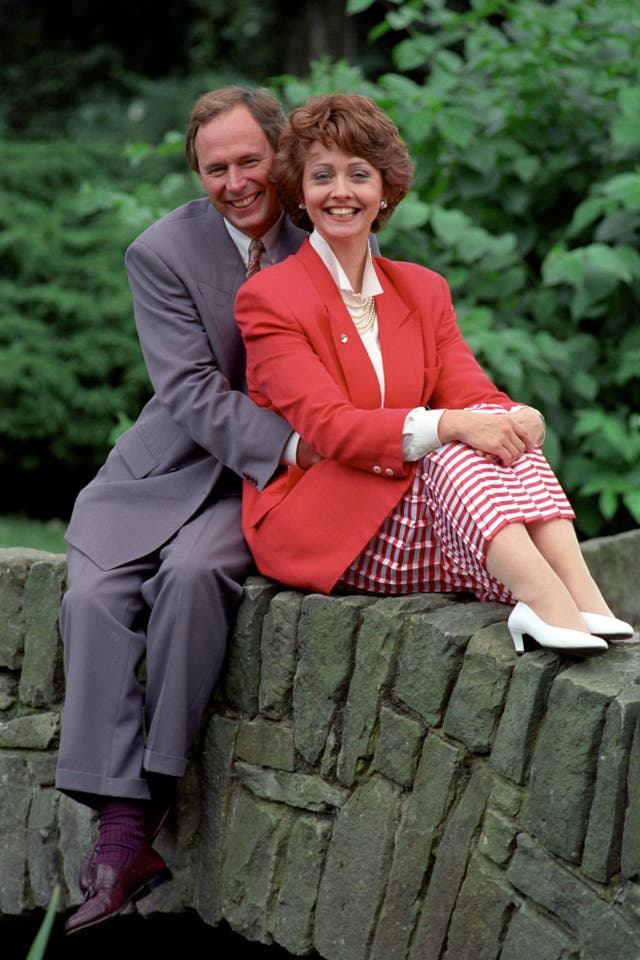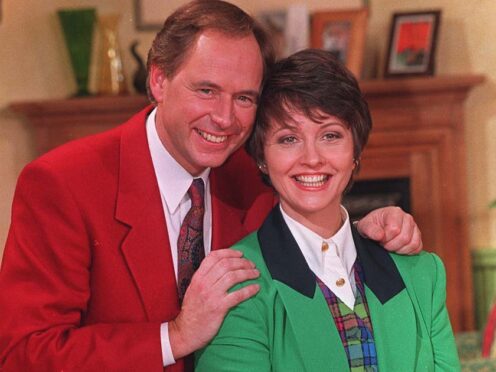Veteran broadcaster Nick Owen said he and former BBC co-host Anne Diamond have been “cajoling each other” after being diagnosed with “male female cancers” within the same year.
The 75-year-old BBC Midlands Today presenter, who was diagnosed with prostate cancer in April, said it is nice to have the support of 68-year-old GB News presenter Diamond, who was diagnosed with breast cancer in December – on the same day she found out she was to be made OBE.
Owen, who presented BBC One’s Good Morning With Anne And Nick with Diamond from 1992 to 1996, told Jon Kay and Rachel Burden on BBC Breakfast on Tuesday: “We’ve been sort of cajoling each other… We both had major surgeries, we’ve both been talking to each other, either texting or phoning, it’s a tough old time.
“Even though she’s sort of better and I’m sort of better, you’re not quite yourself for a while, it takes it out of you.”

He continued: “It’s just so ironic that she and I, who are, I suppose, forever associated as a partnership professionally, we both got quintessentially male female cancers.”
Owen said he feels “quite fragile” after undergoing a radical prostatectomy, but plans to return to his role anchoring Midlands Today in September.
Speaking about the operation, he said: “It’s called ‘radical’, so very invasive. I feel quite fragile at the moment, but I am very positive and I’m so much brighter than I was two or three weeks ago, so I feel very lucky, and I’m just really keen to urge people to get checked.
Thanks to Breakfast TV legend @nickowentv for joining us on the #BBCBreakfast sofa and sharing his prostate cancer story so openly. He’s encouraging all men over 50 to get checked. Good to see him looking well. All the best Nick. pic.twitter.com/cTMcvOXKkw
— Jon Kay ☕️ (@jonkay01) August 8, 2023
“I had no symptoms and people might think ‘I have no symptoms so why bother?’, but I think it’s important, especially if you’re over 50, getting in the system, especially if you have family history.
“The key is to get it early… mine was caught early-ish, but, who knows, six months later it could have spread down the body.”
The broadcaster, who said he had suffered no symptoms of prostate cancer, described himself as “eternally grateful for my GP” who encouraged him to have further tests when he himself did not believe them to be necessary.
Owen went on to describe April 13, when he was told he had an “extensive and aggressive” and had to act quickly, as “D-Day”.
“At this moment it seems very encouraging that I am hopefully all clear. Things will emerge later down the line to prove that, I hope, but at this moment in time everything is really encouraging,” he added.
